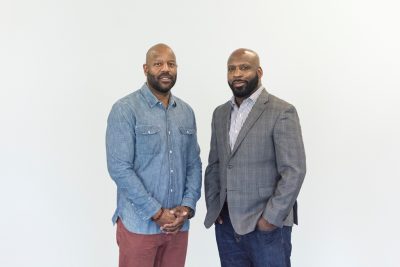Boston’s first recreational marijuana shop may open its doors in the coming weeks — a landmark not only as the first in Boston in general, but also the first in Massachusetts owned by economic empowerment candidates.
The store, Pure Oasis, is set to open as soon as the end of February at 430 Blue Hill Ave. in Roxbury. Owners Kobie Evans and Kevin Hart have secured their certificate of occupancy, which is the final step in obtaining municipal permission.

Evans said he set off on the process of opening the shop in early 2019, and the store will be ready to open for business as soon as it obtains approval from the Massachusetts Cannabis Control Commission.
“We are waiting to see if we are going to be on the agenda for the state Cannabis Control Commission,” Evans said. “If we are on the agenda, then we expect our final license to be approved. Then we have to source product, have a small final inspection and we can be open within weeks.”
Evans and Hart are economic empowerment candidates, meaning both owners are part of communities the state determines have been disadvantaged in the past by anti-marijuana laws. Evans said being able to claim this status inspired them to open Pure Oasis.
“I think it was more taking advantage of the opportunity for economic empowerment,” Evans said. “We thought it’d be a great opportunity just to A, create some generational wealth and B, kind of shift the tides of being in an underclass here in the state, and ultimately creating opportunities for other people.”
Evans, who grew up in Boston, said he believes the economic empowerment policy is intended to help people like himself who are most likely to have been disproportionately impacted by the War on Drugs. He said he aims to change the stigma around recreational marijuana use, as well as to be a role model for young people from communities like his.
“We don’t have a lot of examples of people that have been ultimately successful, coming from communities of color,” Evans said. “And we just want to be role models for people to say, ‘Hey, not only is it possible, we’ll even help you get there.’ And I think that’s a big statement for anyone.”
Peter Bernard, executive director of the Massachusetts Growers Advocacy Council, said he thinks Boston should have opened a recreational marijuana store long ago, especially one run by economic empowerment candidates.
“It’s about time Boston let something open,” Bernard said. “It’s been a long time coming and they have not made it easy.”
Bernard said he thinks that the personal attitudes of government officials, particularly Boston Mayor Marty Walsh, have made the process more difficult for prospective store owners.
“Like many people in government,” Bernard said, “on a personal level I think he just doesn’t want it there and that’s why it’s been tough.”
Bernard said the store owners’ identities as economic empowerment candidates is important, as he feels it provides some justice for communities historically targeted more severely for drug crimes.
“I hope that the city of Boston realized the importance of giving some priority to economic empowerment and social equity,” Bernard said. “It’s a little bit of social justice. It’s the right thing to do.”
Morgan Fox, media relations director of the National Cannabis Industry Association, said he thinks opening recreational pot stores is a step in the right direction for the city.
“Allowing regulated cannabis businesses to open and treating them fairly, both in terms of taxation and other regulatory restrictions, is really the only way to displace the illicit market,” Fox said. “And I think that that’s really the goal here.”
Daniel Richardson, 40, of Brighton said that he supports the legalization of marijuana, as well as having stores in the city.
“I mean, I think [marijuana] should be legalized and decriminalized and I don’t really have any objections to it,” Richardson said. “Anything to make it more legal and accessible.”
Donique Whittaker, 27, of Roxbury said she does not have a problem with recreational marijuana in Boston.
“I feel fine about it because I know that there are people who need it,” Whittaker said. “I have a lot of friends who are interested in it. So, it’s not really a problem to me.”
Althea Luhm, 28, of Brighton said she has mixed feelings about the store and the legalization of marijuana in general.
“I understand that criminalizing marijuana had a lot of unintended consequences and unfortunately, the burden disproportionately fell on poor people and communities of color,” Luhm said. “On the other hand, as somebody who works a lot with people with substance use, I don’t know if making more drugs legal is necessarily better for the health.”

















































































































